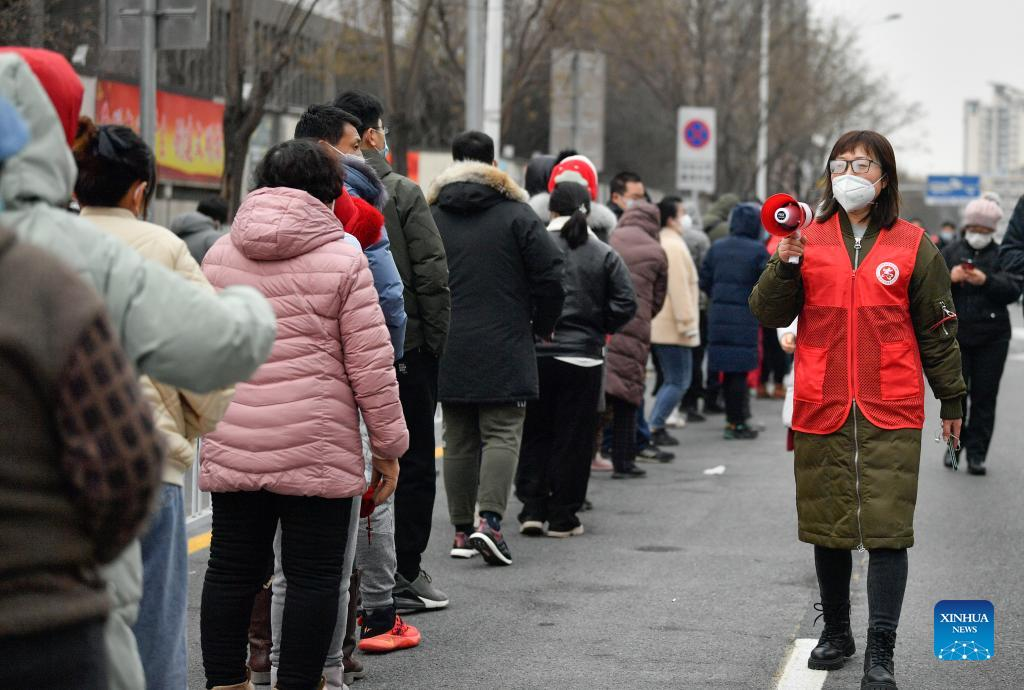China sees first local Omicron transmissions, expands COVID restrictions on tens of millions of people
The 2022 Beijing Olympics begins in three and a half weeks. Officials are confident that their “closed-loop” system can keep COVID away from the Games, even as the first local transmissions of the Omicron variant become apparent.

With less than a month to go before the Winter Olympics begins in Beijing, tens of millions of people are under partial to complete levels of COVID lockdown in China.
- Nearly 20 million are under complete lockdown, with residents confined to their homes: the northwestern city of Xi’an, where 13 million residents are now in their third week of lockdown, and two cities in the central province of Henan, Anyang and Yuzhou, which have 5.5 million and 1.1 million residents, respectively.
- Other cities have instituted partial restrictions, such as the major city of Tianjin, just 66 miles (107 kilometers) southeast of Beijing. Authorities in Tianjin have urged the city’s 14 million residents not to leave the city, and also “partially locked down residential communities and shut schools” per Sixth Tone.
- Zhengzhou, the capital of Henan Province, with over 12 million residents, where there is a large Foxconn plant that makes iPhones, has suspended in-person school and closed dine-in restaurant services after COVID cases were discovered there.
Context on case numbers
- China is reporting about 170 cases a day on a seven-day average — a tiny number by international standards, but as bad as any COVID outbreak in the country since the early months of the pandemic. (The U.S., for comparison, is reporting over 750,000 COVID cases a day on average.)
- However, four cases of the Omicron variant have been confirmed, two in Anyang and two in Tianjin, and officials have said they are connected. This “appears to be the first time Omicron has spread in mainland China beyond people who arrived from abroad and their immediate contacts,” the AP reports.
- Even before Omicron was named in late November, Chinese researchers were warning that “opening up” like the U.S. or Britain would have a “devastating impact on the medical system of China and cause a great disaster within the nation.” (COVID hospitalizations hit an all-time high of over 145,000 in the U.S. today.)
- The arrival of Omicron, especially in proximity to the February 4 start of the Olympics, likely only strengthens Beijing’s inclination to double down on its “COVID-zero” strategy.
Looking ahead to the Olympics
Since January 4, Chinese officials have implemented a “closed-loop” bubble for the Beijing Olympics, in which “participants can only leave if they are exiting the country or undergo quarantine,” and Games-related personnel are limited to “certain zones in and around Olympics venues to avoid any contact and risk of transmission with the local population,” per Reuters.
- Locking down Beijing is off the table, a Beijing Games official said today, though “COVID-19 prevention policies will be adjusted if a large-scale outbreak occurs during the closed loop operation of the event,” according to the Global Times.
- Beijing residents have been urged “not to leave during the Lunar New Year holiday, which begins on Jan. 31,” marking the third year in a row that COVID protocols have impeded the city’s millions of migrant workers from returning home to see their families, the New York Times notes.
- A source within the Beijing Organizing Committee told The China Project that the government has yet to make any decisions on tickets to attend the Games, with a number of options being considered, including selecting government and party employees as spectators and bussing them to various events.
- China announced several months ago that overseas spectators will not be allowed at the Games. The China Project’s source added that it is possible that even foreign residents in China may find the ticket-purchasing arrangements difficult, with a mainland ID required. However, this has yet to be confirmed.






